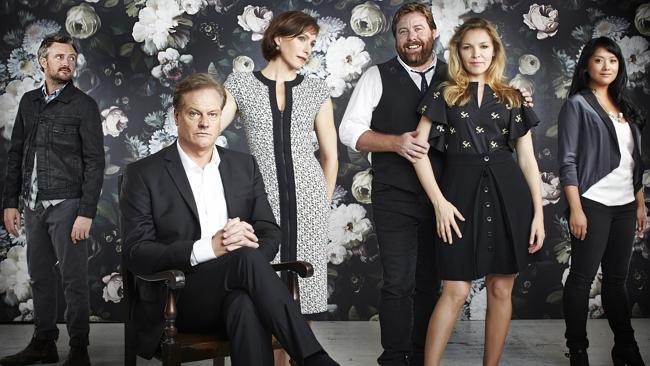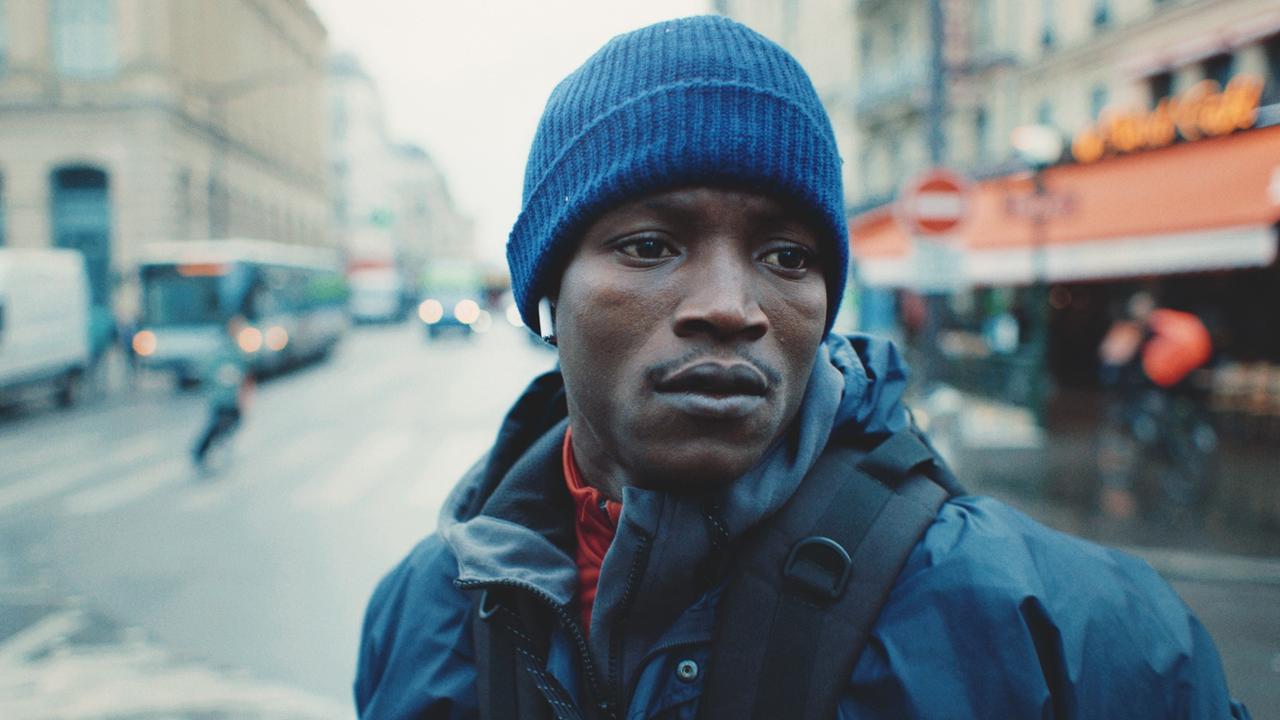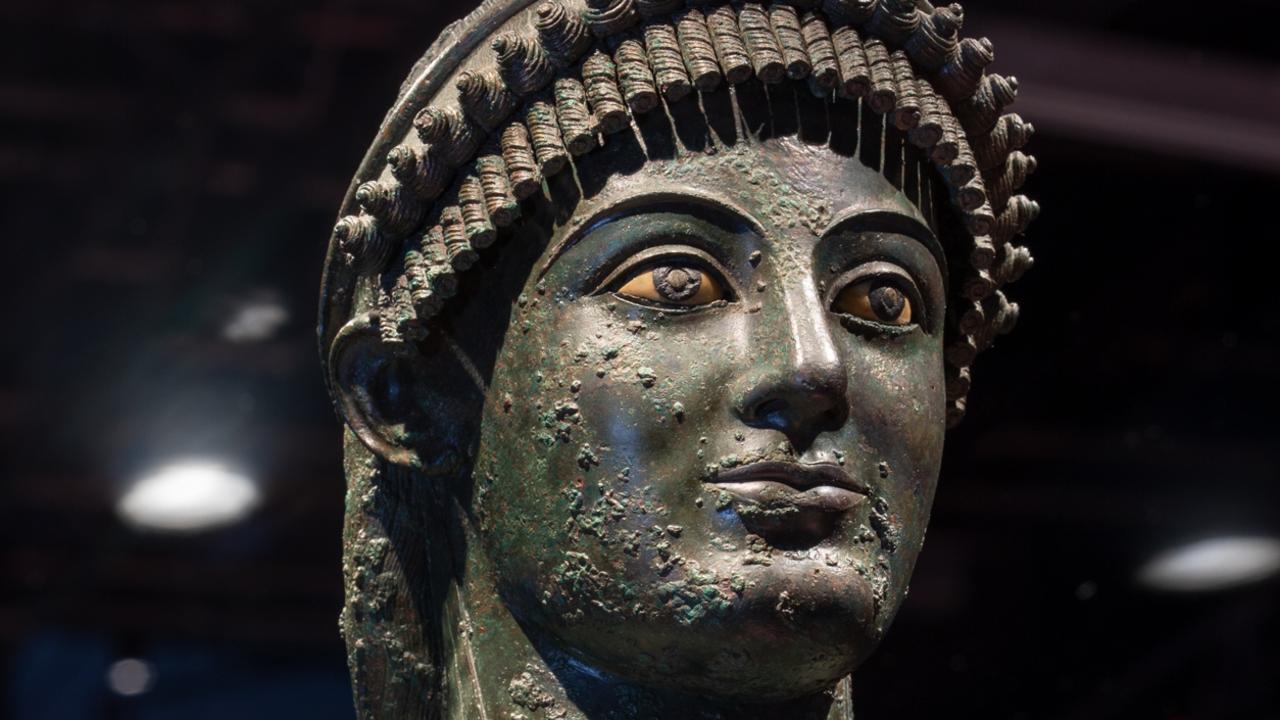Family matters in Time of Our Lives
PRODUCED with great empathy and acted with conviction, The Time of Our Lives is so involving that at times you want to weep.

IN the movie City Slickers, Mitch Robbins, the character played by Billy Crystal, sadly reaches his 39th birthday and finds he’s going nowhere fast. “Did you ever reach a point in your life,” he asks, “where you say to yourself, ‘This is the best I’m ever going to look, the best I’m ever going to feel, the best I’m ever going to do? And it ain’t that great?’ ”
This might be the premise of The Time of Our Lives, the popular ABC series — its 13 episodes each played to just on a million viewers last year — which returns this week, immersing us once more in the lives of the messily extended Tivolli family. They’re presided over by patriarch Ray (Tony Barry) and matriarch Rosa (Sue Jones), who have a lot to deal with in a show pithily described by creators Amanda Higgs and Judi McCrossin as about “settling in with the one you love; still trying to find the one you love; getting away from the one you used to love”.
Produced with great empathy and acted with conviction by a cast of stellar performers, it’s done at a high level of imaginative energy, so involving at times you want to weep. There are some scenes in the first episode of the new season that make for excruciating viewing, especially if you have had any recent experience of dealing with frail, elderly parents.
If you missed the first season, an extended recap succinctly introduces the characters and their travails and re-establishes the major plot lines. It starts with a shocking accident when Ray, an “If you put your tools away, you know where they are” kind of bloke, is almost killed when his car falls on him while he is laboriously repairing an axle. Precariously jacked-up in his garage, the vehicle collapses on his leg, trapping him as oblivious passers-by wander along the street, unaware of his weakening cries and the pooling blood. His leg is irreparably damaged, and the shocking accident irreversibly changes the lives of everyone in the Tivolli family.
It’s not as if they haven’t already got their fair share of woes, either. Bernadette (Justine Clarke), the mother of twin daughters, stepmother to 13-year-old Georgie and partner to Luce Tivolli (Shane Jacobson), is waiting for the results of breast cancer gene testing, having lost her mother to the disease when she was 15. Luce, knockabout and a bit tedious, is a largely unemployed musician seemingly determined to somehow make a more secure living to support his family.
Former barrister Caroline (Claudia Karvan) is returning to the workforce, having left the law to be a full-time mother, and wants to finalise her settlement with Matt Tivolli (William McInnes), from whom she is now separated, without losing her home. He’s a professional sports agent, elder son of Ray and Rosa, brother to Luce and adopted sister Chai Li (Michelle Vergara Moore) and left Caroline for Alice (Cheree Cassidy), who is now pregnant. Matt struggles to fulfil his many different roles as an agent, father, ex-husband, lover and son.
If you haven’t seen the show this genealogy sounds horribly complex, but plays with beguiling simplicity. There’s more, too.
Chai Li returned to Vietnam at the end of the first season to live with her birth mother and is still romantically involved with Herb Ireland (Stephen Curry), Luce’s best mate from primary school, now running his comedy bar — The Wisecrack. There’s a lot going on in this family that covers many area codes but, for all the immediate disasters, the series suggests that, as Anton Chekhov said, “Any idiot can face a crisis, it’s day-to-day living that wears you out.”
It’s an appealing, often confronting series that starkly reflects the new candour about living arrangements when it’s increasingly difficult to understand just what constitutes family. Where we keep our clothes these days is not always the only place where we maintain our commitments. The show imaginatively kicks off from the reality that roles and obligations can’t be rigidly prescribed in respect to kin living in different households, that people define their own families. It deals with conflicts that can happen when family members have views or beliefs that clash, especially when it comes to parenting, frustrated lives palpitating in concert.
And the way that peaceful resolution in disputes requires skills in two-way communication, negotiation, compromise and respect for the other person’s point of view. Not skills often on display in this complex extended family, and probably not in all that many marriages, for that matter; there is an understated but painful realism on display in this captivating show.
Once again it’s all quite subtly done; eight more episodes of finely observed character-based drama with unobtrusive but expressive direction in the first episode from Jonathan Brough. (Other directors include Tori Garrett, Sian Davies and Fiona Banks.) Director of photography Jaems Grant returns as well, with that distinctive voyeuristic, subjective camera feel, and McCrossin script for episode one is crisp and witty, expressed in short, sharp scenes, and relying on suggestion and implication.
BRUCE Beresford is among the most prolific and proficient of the first generation of filmmakers in the 1970s Australian revival. He’s a man not easily perturbed, easygoing, rather literary, gregarious, inquisitive and highly intelligent. I once asked him why he wasn’t part of the new wave of Australian TV drama, a golden age of storytelling really, and, in his phlegmatic, quizzical way, he just shrugged his shoulders and said, “Well, no one has ever asked me.”
Well, he’s found his way into American TV with a two-part, four-hour factually based and imaginatively fabricated narrative for the History Channel, a co-production with sister networks Lifetime and A & E. It’s a reimagining of the tale of Bonnie and Clyde, the leads played convincingly by Holliday Grainger and Emile Hirsch, and like everything Beresford does, it’s unabashedly its own self.
As you would expect, almost half a century down the dusty Louisiana trail, it’s totally different to Arthur Penn’s 1967 film. Beresford calls it “a somewhat more historically accurate take” on the exotic couple who blasted their way across the southern states, killing 14 people in the course of their mostly inept robberies.
It seems that the truth has been a little elusive since these rather shabby bandits met their grisly end in 1934, and even in Beresford’s version the closing credits contain the disclaimer, “This story is based upon the lives of Bonnie Parker and Clyde Barrow”.
Well, in the end great stories are about imaginative worlds, great characters, reverberating events, and resonant themes; they tell us about calamities and treacheries, terrible blunders and redemptions. They’re not about facts. But Beresford does contain his ill-fated love story within a context of authenticity with a chronological meticulousness, with titles, Ken Burns-style, giving the dates and places of significant incidents, and old photographs, newspaper pages and newsreels incorporated for documentary effect.
Beresford’s writers, John Rice and Joe Batteer, begin at the end; at the very point the legend was born, the bloodied corpses of its title characters towed into the little town of Gippsland, Louisiana, on May 23 in their bullet-riddled car. Schoolchildren ogle the corpses, and pull the shroud off Clyde’s destroyed face.
It’s a story about their journey, narrated by Clyde, seemingly possessed of the power of second sight, enabling Beresford to indulge in some portentous flash-forwards, especially Bonnie traipsing towards her soon-to-be lover in a glittering white dress before they embark on their killing spree.
Bonnie is the celebrity-obsessed mastermind, Clyde the man she both loved and used for her vainglorious purposes. “He Held the Gun. She Called the Shots”, the publicity tagline goes, and the two-parter is nicely elegiac, though Beresford hardly venerates the violent perpetrators. There’s also a standout performance from William Hurt as an obdurate retired Texas ranger who can’t wait to put bullets in the heads of these star-crossed lovers.
Bonnie and Clyde, Saturday, 7.30pm, Soho
The Time Of Our Lives, Thursday, 8.30pm, ABC1


